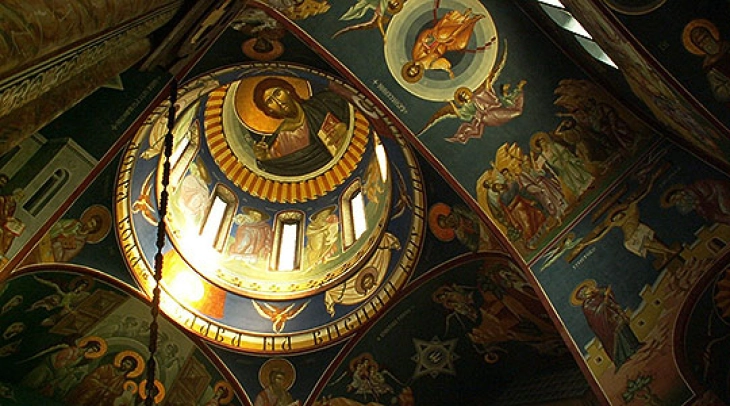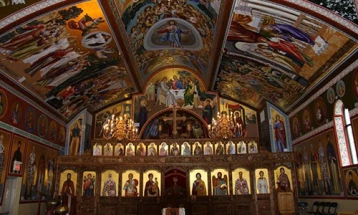Religious calendars
- 22 September 2024 (MIA)

22 September 2024 (MIA)
Macedonian Orthodox Church Calendar
Ss. Joachim and Anna
St. Joachim was of the tribe of Judah, and a descendant of King David. Anna was the daughter of Matthan the priest, of the tribe of Levi as was Aaron the High Priest. This Matthan had three daughters: Mary, Zoia and Anna. Mary was married in Bethlehem and bore Salome; Zoia was also married in Bethlehem and bore Elisabeth, the mother of St. John the Forerunner; and Anna was married in Nazareth to Joachim, and in old age gave birth to Mary, the most holy Mother of God.
Joachim and Anna had been married for fifty years, and were barren. They lived devoutly and quietly, using only a third of their income for themselves and giving a third to the poor and a third to the Temple, and they were well provided for. Once, when they were already old and were in Jerusalem to offer sacrifice to God, the High Priest, Issachar, upbraided Joachim: “You are not worthy to offer sacrifice with those childless hands.” Others who had children jostled Joachim, thrusting him back as unworthy. This caused great grief to the two aged souls, and they went home with very heavy hearts.
Then the two of them gave themselves to prayer to God that He would work in them the wonder that He had worked in Abraham and Sarah, and give them a child to comfort their old age. God sent them His angel, who gave them tidings of the birth of “a daughter most blessed, by whom all the nations of the earth will be blessed, and through whom will come the salvation of the world.” Anna conceived at once, and in the ninth month gave birth to the holy Virgin Mary. St. Joachim lived for eighty years and Anna for seventy-nine and they both entered into the kingdom of God.
Catholic Calendar
St. Thomas of Villanueva
Augustinian bishop. Born at Fuentellana, Castile, Spain, he was the son of a miller. He studied at the University of Alcala, earned a licentiate in theology, and became a professor there at the age of twenty-six. He declined the chair of philosophy at the University of Salamanca and instead entered the Augustinian Canons in Salamanca in 1516. Ordained in 1520, he served as prior of several houses in Salamanca, Burgos, and Valladolid, as provincial of Andalusia and Castile, and then court chaplain to Holy Roman Emperor Charles V (r. 1519-1556).
During his time as provincial of Castile, he dispatched the first Augustinian missionaries to the New World. They subsequently helped evangelize the area of modern Mexico. He was offered but declined the see of Granada, but accepted appointment as archbishop of Valencia in 1544. As the see had been vacant for nearly a century, Thomas devoted much effort to restoring the spiritual and material life of the archdiocese.
He was also deeply committed to the needs of the poor. He held the post of grand almoner of the poor, founded colleges for the children of new converts and the poor, organised priests for service among the Moors, and was renowned for his personal saintliness and austerities. While he did not attend the sessions of the Council of Trent, he was an ardent promoter of the Tridentine reforms throughout Spain.







